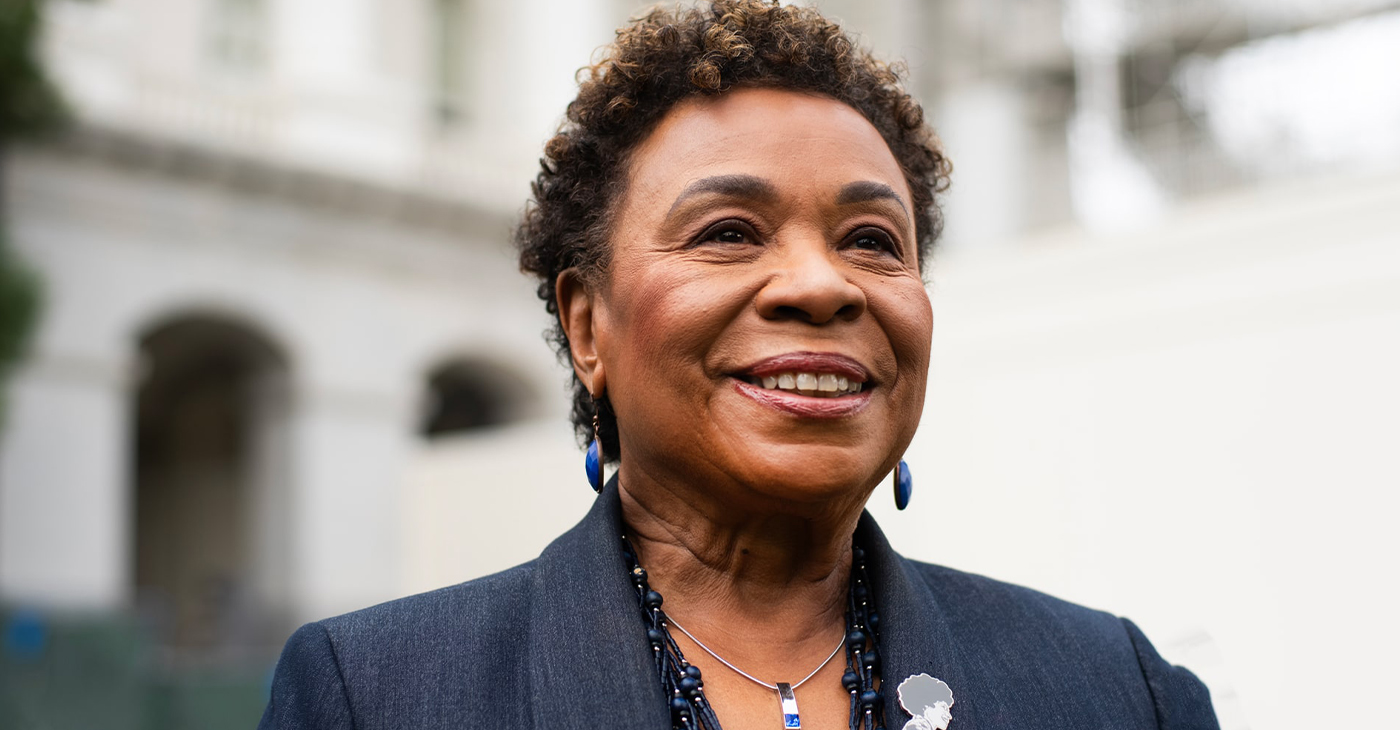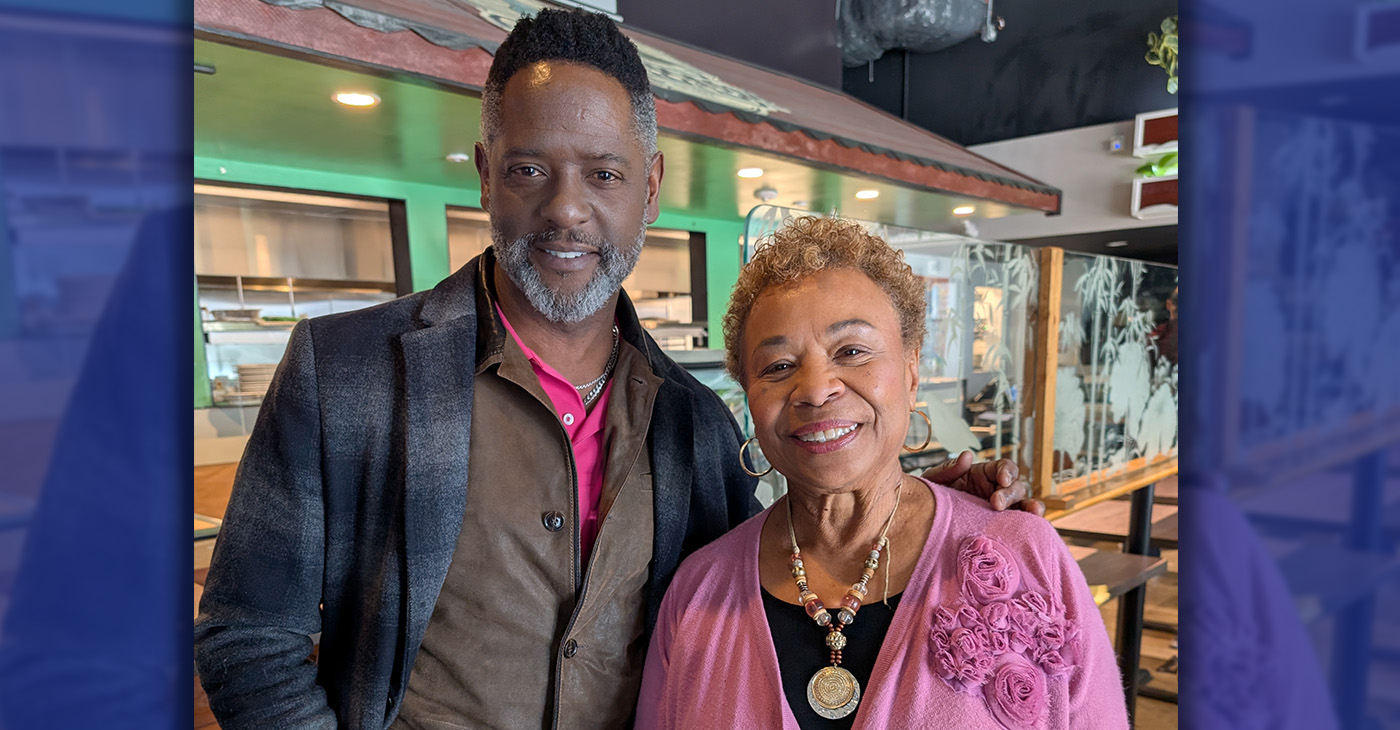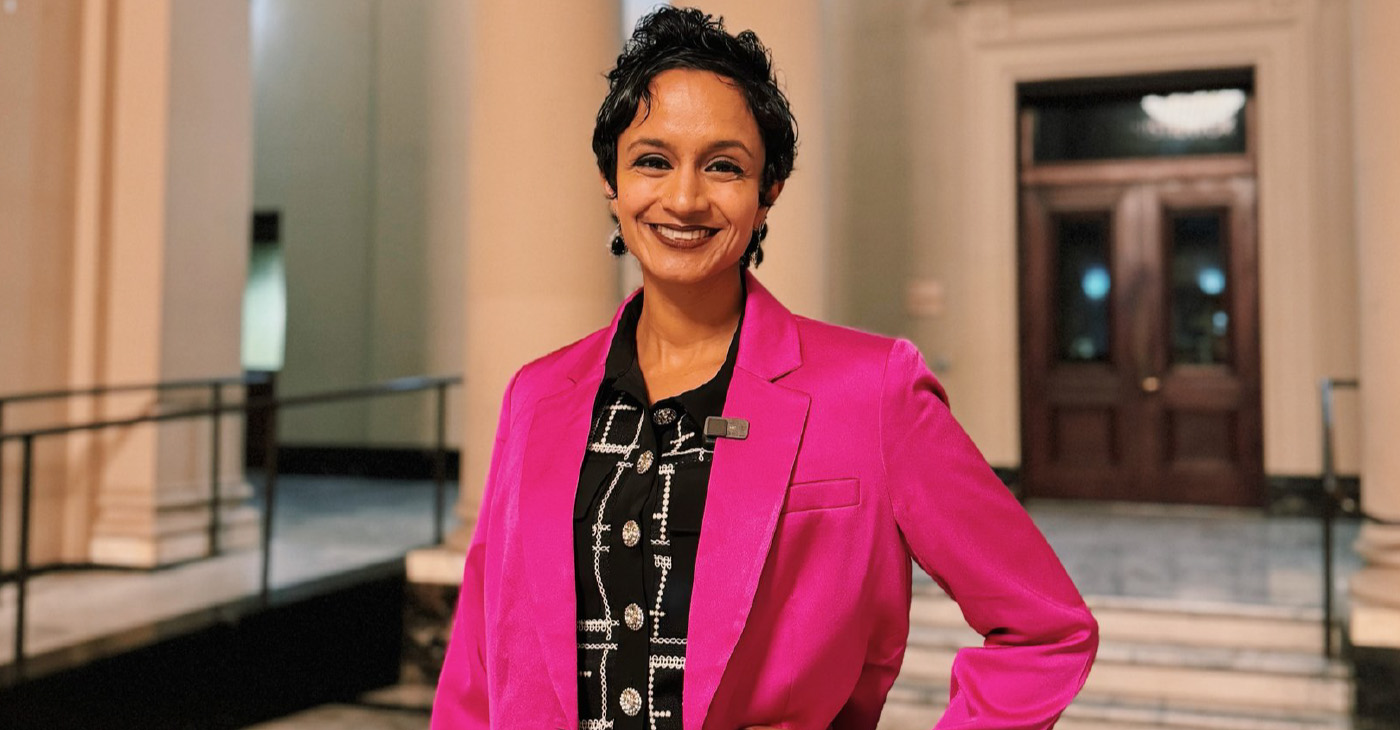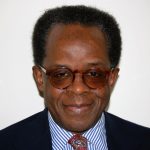Op-Ed
America’s True Crime Problem
By Lee A. Daniels
NNPA Columnist
It’s getting to be difficult to recall a week when, thanks to public exposure of videos, or tweets, text messages or emails, we’ve not seen another shocking example of police mistreatment of Black or Hispanic citizens under questionable circumstances.
Consider that, and then ponder these words about Black Americans and the criminal justice system: “There is too much crime and too little justice in the lives of black Americans today. But while the problem of crime is widely shared in the United States, the problem of injustice is not.”
And these words which closely follow them: “It is a paradox that black Americans, who suffer from crime disproportionately, have mixed feelings, at best, regarding its support of and confidence in the criminal justice system as it operates today.”
And, finally, these: “The only way out of this paradox is to address the problems of crime and injustice simultaneously: changing the nature of the courts, criminal punishments and law enforcement agencies and their agents, while honestly acknowledging the scope of the crime problem and working for peace in Black America.”
No, you won’t find those words in the agreement signed recently by the Department of Justice and the city of Cleveland requiring an extensive reform of the city’s widely-criticized police force. Actually, they were written 20 years ago by criminal justice scholar Christopher E. Stone, then head of the nonprofit Vera Institute for Justice, in the 1996 edition of the National Urban League publication, The State of Black America 1996. Stone, a founder of the Neighborhood Defender Service of Harlem, in New York City, is now president of the George Soros-funded Open Society Foundations.
But they are as relevant today as then because the use of social media has undeniably revealed that some significant segment of cops – largely White ones but also some Black and Hispanic ones, too – view Black Americans not as citizens to protect but easy marks to prey upon.
What’s also been made clear, via a growing stack of Justice Department investigations of small-and big-city police departments, is that this predatory attitude and behavior, has long been part of the “culture” of policing itself.
For example, one of the high-ranking Miami Beach, Fla. cops charged last month with exchanging 230 emails filled with racist and sexist jokes and pornography, told a local news channel last year when the emails first surface, “That was the culture back then. It was just guys emailing each other. There was a good ol’ boy mentality back then.”
What that “aw shucks” pose tried to obscure was both the vile nature of the emails and that “back then” covered the years 2010 to 2012.
Who would expect officers with these attitudes to treat citizens of color fairly? Polls have long shown that Black Americans don’t.
The Justice Department’s scathing report on the management and practices of the Cleveland police force is the latest to show that police department’s racist practices toward Blacks and Hispanics is also both a cause and effect of bad policing: of the unnecessary and excessive use of deadly force and lethal force; of retaliatory beatings and the unnecessary use of Tasers, batons and chemical sprays; of the mistreatment of people who are mentally ill; of the use of poor tactics in dangerous situations that put officers and innocent civilians at risk; and of a lack of proper training and supervision of its officers.
The findings largely repeat those of a Justice Department investigation done a decade ago during the Bush administration that let Cleveland officials off the hook with a voluntary pledge to change departmental practices.
The new agreement requires specific measures to correct the deficiencies. Most important, it mandates the creation of a 13-member community police commission to oversee the reform effort. That body will have 10 members representing a cross-section of the Cleveland community and one member each from the Cleveland Patrolmen’s Association, the Fraternal Order of Police, and the Black Shield Police Association.
Of course, the commission has much contentious work ahead of it in trying to solve the problems of the Cleveland police force. But the Justice Department’s involvement in forging the agreement, and those of other communities bedeviled by egregiously racist police practices, underscore the fact that reforming bad police departments requires the combination of federal government oversight and local government oversight and local-community oversight.
That requires that the right people be in charge of the Justice Department – which means having the right people in charge of the White House – if there’s to be any chance of solving the nation’s true crime problem: a criminal justice system built substantially on injustice, particularly racial injustice.
Lee A. Daniels is a columnist for the National Newspaper Publishers Association. His essay, “Martin Luther King, Jr.: The Great Provocateur,” appears in Africa’s Peacemakers: Nobel Peace Laureates of African Descent (2014), published by Zed Books. His new collection of columns, Race Forward: Facing America’s Racial Divide in 2014, is available atwww.amazon.com.
###
Activism
Oakland Post Endorses Barbara Lee
Barbara Lee will be able to unify the city around Oakland’s critical budget and financial issues, since she will walk into the mayor’s office with the support of a super majority of seven city council members — enabling her to achieve much-needed consensus on moving Oakland into a successful future.

As we end the celebration of Women’s History Month in Oakland, we endorse Barbara Lee, a woman of demonstrated historical significance. In our opinion, she has the best chance of uniting the city and achieving our needs for affordable housing, public safety, and fiscal accountability.
As a former small business owner, Barbara Lee understands how to apply tools needed to revitalize Oakland’s downtown, uptown, and neighborhood businesses.
Barbara Lee will be able to unify the city around Oakland’s critical budget and financial issues, since she will walk into the mayor’s office with the support of a super majority of seven city council members — enabling her to achieve much-needed consensus on moving Oakland into a successful future.
It is notable that many of those who fought politically on both sides of the recent recall election battles have now laid down their weapons and become brothers and sisters in support of Barbara Lee. The Oakland Post is pleased to join them.
Activism
Actor, Philanthropist Blair Underwood Visits Bay Area, Kicks Off Literacy Program in ‘New Oakland’ Initiative
These community activations were coordinated with the San Francisco-based non-profit program “Room to Read.” Ray said he is also donating his time to read and take pictures with students to encourage their engagement and to inspire them to read more. The inspirational book “Clifford Ray Saves the Day” highlights Clifford Ray’s true story of saving a dolphin.

By Paul Cobb
New Oakland Series
Opinion Part 3
The Post mentioned three weeks ago that a number of our local luminaries were coming together to support the “New Oakland” movement. As this current national administration continues to eliminate our “legacy” institutional policies and programs left and right, most communities find themselves beyond “frozen” in fear.
Well, esteemed actor, long-time Bay Area supporter, and philanthropist Blair Underwood returned to Oakland this week to speak with city leaders, community trust agents, students, the Oakland Post, and local celebrities alike to continue his “New Oakland” initiative.
This week, he kicked off his “Guess Who’s Coming to Read” literacy program in some of Oakland’s middle schools. Clifford Ray, who played the center position of the 1975 World Champion Golden State Warriors, donated close to 1,000 books. Ray’s fellow teammate Charles “The Hopper” Dudley also gave Converse sneakers to students.
These community activations were coordinated with the San Francisco-based non-profit program “Room to Read.” Ray said he is also donating his time to read and take pictures with students to encourage their engagement and to inspire them to read more. The inspirational book “Clifford Ray Saves the Day” highlights Clifford Ray’s true story of saving a dolphin.
Underwood also spent quality time with the Oakland Ballers ownership group and visited the amazing Raimondi Park West Oakland community revitalization site. In the 1996 TV film Soul of the Game, Underwood played the role of the legendary first Black Major League Baseball player Jackie Robinson and commended the Ballers owners.
“This group of sports enthusiasts/ philanthropists needs to be applauded for their human capital investment and their financial capital investment,” Underwood said. “Truly putting their money and passion to work,” Underwood said.
Underwood was also inspired by mayoral candidate Barbara Lee’s open-minded invitation to bring public-private partnership opportunities to Oakland.
Underwood said he wants to “reinforce the importance of ‘collaborative activism’ among those most marginalized by non-empathic leadership. We must ‘act out’ our discomfort with passionate intentions to create healthy change.”
Activism
Councilmembers Ramachandran, Kaplan, Unger Identify Funds to Save Oakland Fire Stations
Our budget crisis – one of the worst in Oakland’s history – is compounded by the fact that people do not feel safe coming to Oakland due to our public safety crisis. By investing in our fundamental public safety resources today, we can send a signal to the world that Oakland is open for business. We have such a rich and vibrant culture, arts, and food scene that is worth celebrating – but we can only showcase this if we are able to keep our neighborhoods safe. Having fully functioning fire stations are absolutely essential to these efforts.

By Janani Ramachandran
There is no greater concern to the people of Oakland today than public safety. Fire stations are the bread and butter of essential city services – and every day that we have stations shuttered, we imperil the lives of our community members. In response to widespread outcry over the current and planned closure of stations, myself, along with Councilmembers Kaplan and Unger, have painstakingly worked to identify millions of dollars of new funding to save our stations. The legislation we introduced on Thursday, February 13th, will amend our budget to prevent the closure of four fire stations that are currently on the chopping block due to our budget crisis and will re-open two closed stations that have already been closed – Station 25 and 28 – in the near future. The resolution that will provide the funding to keep our stations open will go before the full City Council for a vote at our meeting on Tuesday, March 4th at 3:30 PM – and we invite you to join us at City Hall to share your perspective on the topic.
Our budget crisis – one of the worst in Oakland’s history – is compounded by the fact that people do not feel safe coming to Oakland due to our public safety crisis. By investing in our fundamental public safety resources today, we can send a signal to the world that Oakland is open for business. We have such a rich and vibrant culture, arts, and food scene that is worth celebrating – but we can only showcase this if we are able to keep our neighborhoods safe. Having fully functioning fire stations are absolutely essential to these efforts.
With the devastating Los Angeles fire at the top of people’s minds, terrible memories of Oakland’s own wildfires are re-surfacing from the 1991 Oakland Hills Firestorm to the Keller fire just a few months ago – and how essential fire stations are to mitigating these catastrophes. But in Oakland, our fire stations don’t just fight wildfires – they also provide emergency medical services to our most vulnerable constituents, put out structural fires and encampment fires, and much more.
We recognize that there are a number of competing interests and important initiatives fighting for sparse City resources. But from my perspective, core safety services are the most pivotal functions that a City must spend its resources on – especially given the outcry we have heard around fire stations.
The fight to save our stations is not over. The resolution we introduced is a critical first step, and there are hurdles to overcome. If you support keeping our fire stations open, we invite you to be a part of the solution by making your voice heard at the March 4th City Council meeting at 3:30 pm.
-

 Activism4 weeks ago
Activism4 weeks agoOakland Post: Week of April 9 – 15, 2025
-

 Activism2 weeks ago
Activism2 weeks agoAI Is Reshaping Black Healthcare: Promise, Peril, and the Push for Improved Results in California
-

 Activism3 weeks ago
Activism3 weeks agoOakland Post: Week of April 16 – 22, 2025
-

 Activism2 weeks ago
Activism2 weeks agoNewsom Fights Back as AmeriCorps Shutdown Threatens Vital Services in Black Communities
-

 Activism2 weeks ago
Activism2 weeks agoBarbara Lee Accepts Victory With “Responsibility, Humility and Love”
-

 Activism2 weeks ago
Activism2 weeks agoESSAY: Technology and Medicine, a Primary Care Point of View
-

 Activism2 weeks ago
Activism2 weeks agoFaces Around the Bay: Author Karen Lewis Took the ‘Detour to Straight Street’
-

 Activism2 weeks ago
Activism2 weeks agoFour Bills Focus on Financial Compensation for Descendants of Enslaved People





















































Pingback: Media Outlets Are Taking It Upon Themselves to Track the Number of People Killed by Police |
Pingback: Media Outlets Are Taking It Upon Themselves to Track the Number of People Killed by Police |